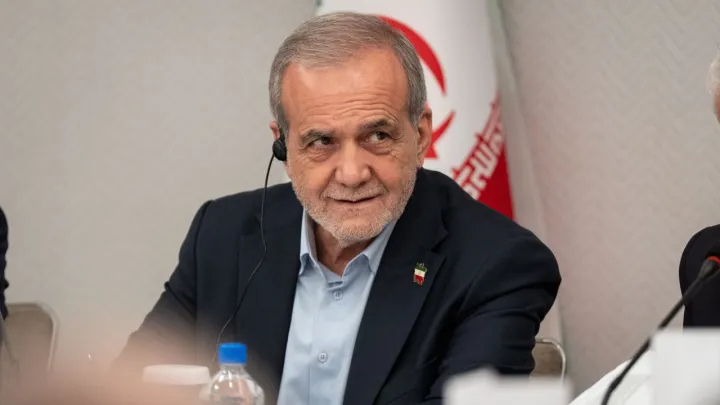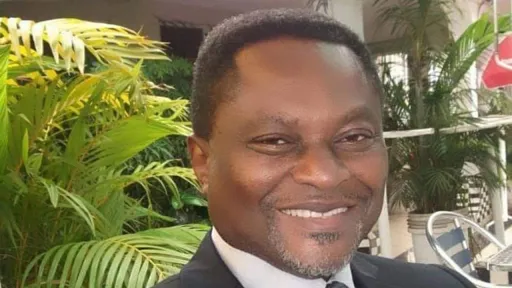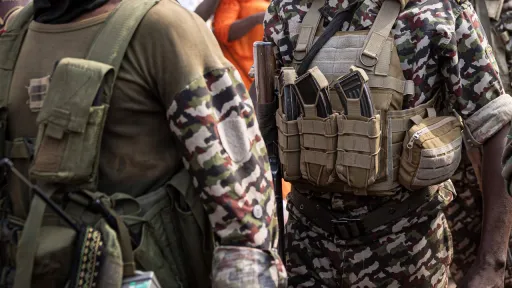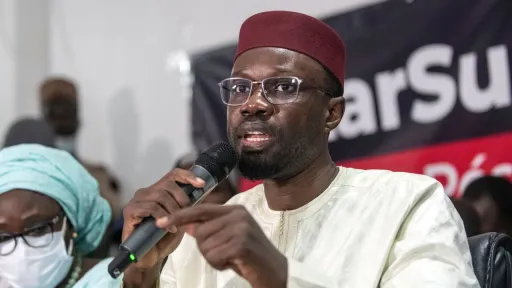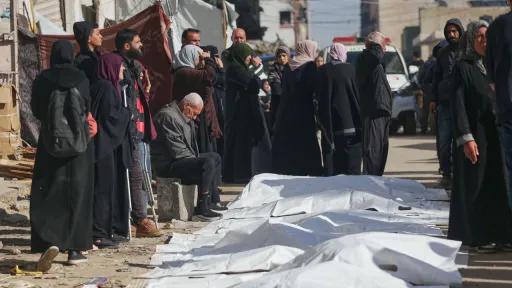By Pauline Odhiambo
Mike Spencer Mandizvo has lived in South Africa for 13 years since moving to Johannesburg around the time the country was gearing up to host the 2010 FIFA World Cup.
The Zimbabwe national couldn't have picked a better time to start a new life in South Africa. The country's transport, energy, telecommunications, and social infrastructure were being upgraded and expanded, entailing an expenditure of US $3 billion.
This translated into thousands of jobs and the creation of businesses catering to the estimated 300,000 tourists who would visit the country during the World Cup.
"It took me less than a week to get a job in 2010," Mike tells TRT Afrika. "I was hired as the production manager for an airline catering company. Back then, it was quite easy to land a job."
One would have expected this to be an inflexion point for the South African economy, but things have drastically changed since 2010.
South Africa's unemployment rate rose to 32.9% in the second quarter of 2024, barely two weeks before the governing ANC's acid test in the May 29 elections.
Runaway joblessness
Like the other political parties vying for the electorate's mandate, the ANC has pegged its manifesto on creating more jobs for South Africans.
However, the current unemployment rate, which is closer to the record high of 35.3% at the peak of the pandemic in 2021, suggests that the odds are stacked against it.
According to the portal Statistica, there were 7.34 million unemployed people in South Africa in 2023, against 7.24 million the previous year.
Indeed, unemployment has followed a yearly incremental trend from 2013 onwards, dropping only in 2020.
Mike was among thousands of workers in the country laid off in 2020 as the impact of the pandemic kicked in. Until then, he had held several well-paying jobs, including the last five years as a quality controller in one of the country's largest retail companies.
The 37-year-old now works as a taxi driver to support his wife, their two children, and his extended family back home in Zimbabwe.
Anti-foreigner sentiment
Although South Africa markets itself internationally as an attractive destination for tourism and investment, the rainbow nation, home to people of every race, colour and creed, has not always been known to be hospitable to migrant workers.
"Dealing with xenophobia is a part of life in Johannesburg. Clients riding my taxi will sometimes ask why I am taking away a job opportunity from fellow South Africans," says Mike.
At least 20 of his colleagues have been assaulted while on the job. "We are constantly reminded that we are foreigners here. We are seen as a threat."
There are currently over two million migrants in South Africa, which has a population of 62 million.
The majority of migrant workers hail from neighbouring Zimbabwe, Lesotho, and Mozambique, according to Stats SA.
Since the end of apartheid in 1994, migrants from Africa and Asia have flocked to South Africa for work, business, education and asylum.
These include people from Somalia, Ethiopia, Nigeria and the Democratic Republic of Congo, as well as Asian countries like China, India, Pakistan, and Bangladesh.
South Africa had its worst spell of xenophobic violence targeting migrants in May 2008, when at least 62 people were killed, hundreds injured, and about 100,000 displaced as mobs targeted homes of migrants across the country.
In 2023, Operation Dudula, a vigilante group-turned-political party, led a campaign to shut down businesses owned by foreign nationals. Dudula means to drive out or evict in Zulu, a language widely spoken in Southern African countries.
Mike, who has been renewing his work permit since 2010, says many taxi drivers have installed dashboard cameras and audio recorders in their vehicles to document instances of abuse.
"Xenophobia is a card many politicians play during elections to get more votes," Mike tells TRT Afrika.
"This year, we have seen some politicians openly saying that they don't want any foreign nationals in South Africa, regardless of whether they are legally or illegally in the country."
Politics of migration
Oscar van Heerden, a senior research fellow with the Centre for African Diplomacy and Leadership at the University of Johannesburg, points out that at least two political parties have been vocal about migrant workers.
"Action SA and the Patriotic Alliance have taken a position that if you are in South Africa legally and have the right documentation to support that, you can live and work there. But those that don't have valid papers must be forcibly repatriated," says van Heerden.
"Both parties' stance is based on the argument that undue pressure is being placed on the South African government regarding social-service delivery in hospitals, schools and general welfare. There's also the refrain that a lot of illegal immigrants are taking away jobs from South Africans."
Work-permit system
General work visas are issued to foreign nationals by the department of home affairs for a maximum of five years, or the duration stipulated on an employment contract.
"This (the home affairs department) is one of several organisations in South Africa tasked with protecting the rights of foreign nationals," explains van Herdeen.
"Several other organisations are catering to foreign nationals on a country-to-country basis. For example, some organisations specifically safeguard the welfare of Zimbabweans, Malawians and other foreign nationals in the country."
Special police groups are also required to protect foreigners, although Mike says these mainly cater to diplomats and higher-income migrant workers.
Many Zimbabwean nationals can legally work in South Africa through special work visas granted to foreign nationals from neighbouring countries.
"The first work visa I got was the DZP, a special dispensation permit granted to Zimbabwean nationals. I was later given another special permit called the ZSP, and then an exemption permit called ZEP," says Mike.
The deadline to apply for a fourth special work visa is December 2024. "The work-permit renewal process isn't easy. It has become more complicated over the years and can be quite stressful," rues Mike.
'Lenient' coalition
Opinion polls suggest that the ANC, which has been in office since the end of apartheid three decades ago, is at risk of losing its parliamentary majority to the Democratic Alliance (DA), the official opposition party led by John Steenhuisen, and the Economic Freedom Fighters (EFF) party of political firebrand Julius Malema.
Former President Jacob Zuma, who now leads the uMkhonto we Sizwe (MK) party after a political fallout with ANC, is also seen as a threat despite being barred by South Africa's Constitutional Court from running for the presidency because of a conviction and jail sentence for corruption.
Migrant workers like Mike, though unable to vote in the elections, are guardedly optimistic that a coalition government could perhaps work to quell instances of xenophobia in the country.
"I am certain that the ANC will win the election, albeit not with the mandate it would like. So, it's likely that there will be a coalition government," he predicts.
➤Click here to follow our WhatsApp channel for more stories

